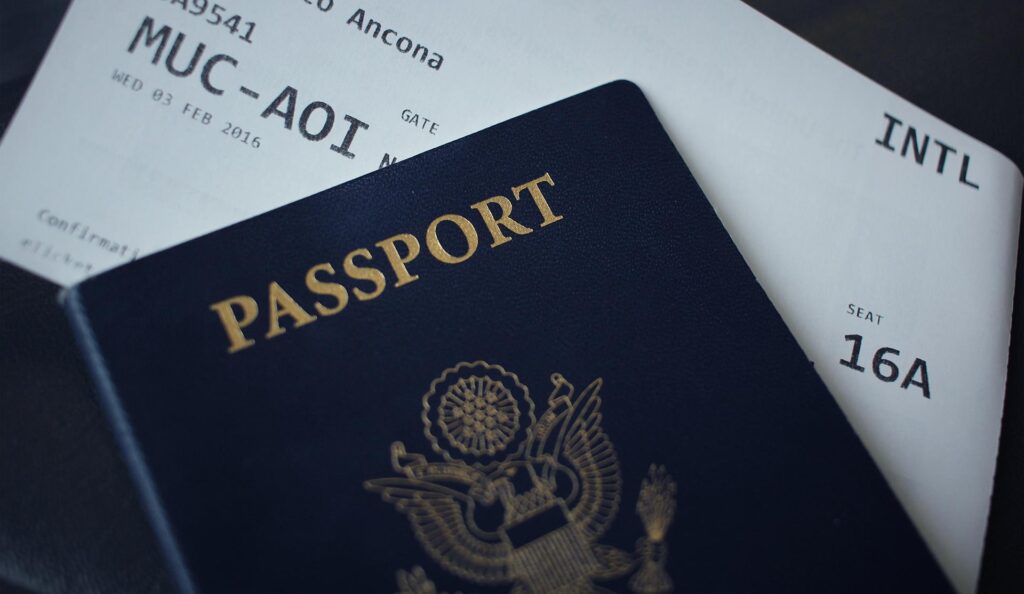The E-2 Visa

In a sense this is the simplest of all the Investor/Permanent residency visas. The E-2 Visa is based on a treaty between the U.S. and certain other countries. It is issued to the foreign nationals of these treaty countries solely based on the foreign national investing (this includes buying or starting a business) in a U.S. business. They must develop and manage the business in which they have invested. As such, to qualify for this visa the applicant must have invested or plans to invest in the near future a substantial amount of capital within America.
To be eligible for the E-2 Visa, you must:
- Be a national of country with a treaty of commerce and navigation with the U.S. Go to the following link to see a list of countries that have a treaty https://travel.state.gov/content/travel/en/us-visas/visa-information-resources/fees/treaty.html. The list is long but doesn’t include some countries you would think would be there like South Africa.
- Provide substantial investment (typically a minimum of $100,000, but can be less, this is not an absolute number). There is no absolute test that can be applied in determining whether an investment is substantial. In other words, there is no minimum dollar amount under the law; instead, the government uses elaborate tests to determine whether the investment is substantial. Generally, in order to meet the substantiality test, a business must establish one of the following:
- The investment must be proportional to the total value of the particular enterprise in question (a test usually applied to investment in existing businesses); or
- The investment must be an amount normally considered necessary to establish a viable enterprise of the type contemplated (usually applied to new businesses);
- The investment must be made prior to applying for the E-2 Visa. The law requires that the funds be at risk. Thus, generally, the investment must be committed and the funds either paid, held in trust or in some instances under contract. Although a reasonable amount of funds may be considered when placed in an operating account for the business, the rest of the investment should be made by the time the E-2 Visa application is filed. As a last note, the money invested must be considered at risk. Therefore, passive and non-operating businesses do not qualify. Example of what would not qualify include: Condominiums and land. Note that rental apartment buildings might depending on how many people are employed and the nature of their employment.
- The visa applicant needs to establish or buy a business in which they control 50+%. Also the USCIS will require that the business have physical premises secured either through a lease or purchase of a commercial office/warehouse space in order to operate the business.`
- The visa applicant needs to be in a role which is managerial or supervisory in nature.
- The investment must be committed (they will want to see proof that you actually spent/invested the money). As to what types of financial transactions can make up the investment? Only money that is personally at risk can make up the investment. As such, the following will generally qualify:
- cash reserves placed in business account (with evidence of source of income);
- loans secured by the investor’s own assets, such as a mortgage on investor’s real property;
- unsecured loans granted on the basis of the investor’s signature;
- value of purchased equipment and property.
- Non-qualifying investments can be the following:
- mortgage debt or other loans secured by the enterprise’s assets;
- loans for which the lender does not have recourse against the borrower;
- You must have a residence close to the business – commuting distance.
Additional Expectations and Requirements
The USCIS will expect the minimum employment for E-2 Visa holders. The visa holder needs to act as the owner, CEO, President, Chairman of the Board etc. They cannot act as workers. Under them, a manager (optional) and under the manger at least 1 to 2 workers (if no manager 2 workers). Note that a spouse, child, or parent can frequently qualify as an employee or manager (even though they are coming here under the same visa).
Let’s take a simple example such as a Beauty Salon (Hair Dresser). The owner can act as the greeter, receptionist, cashier (they need to be perceived as overseeing the business and not as being a cashier or receptionist) and/or a bookkeeper for example. However, the owner cannot act as a hair dresser or a stylist even though they may be qualified to do so. They could be a supervisor overseeing the hair dressers/stylists. This at times can be a little tricky where you have few employees.

While the investor does have the opportunity to bring his employees to the U.S. The individuals from the foreign country needs to establish they will work in the E- 2 business in either a supervisory, executive, or highly specialized skill capacity for them to qualify for an E-2 Visa. Ordinary skilled and unskilled workers do not qualify. In some instances, it may be best to explore the L-1 visa when companies are transferring employees to the U.S. Also this is usually easier in larger companies (by number of employees) with specialized needs.
The E-2 Investor Visa is initially valid for two to five years typically and may be extended indefinitely. However, there is no direct path to permanent residence or citizenship for the investor or their family.
Other Considerations:
- The investor, either a real or corporate person, must be a national of a treaty country;
- The investment must be a real operating enterprise. Speculative or idle investment does not qualify. Uncommitted funds in a bank account or similar security are not considered an investment.
BENEFITS OF OBTAINING AN E- 2 VISA: This visa is great for families of treaty nations who wish to either buy an existing business or create a new business in the U.S. The individual seeking the business must be at some level active in it. The investment is considered to be active rather than passive. With the visa: you can work legally in the U.S. for a U.S. company that is the subject of the investment. You can stay on a prolonged basis with unlimited extensions as long as you maintain valid E-2 status (i.e. so long as the business remains in operation). Approvals of E-2 Visas tend to be fast as compared to other visas and are not subject to annual limits or quotas. You may bring your dependents (spouse and unmarried children under the age of 21) to live with you in the U.S. Your spouse may seek employment by applying for an employment authorization card once the E -2 Visa is approved. Your children under 21 years of age can study in the U.S; and you may purchase real estate in the U.S.
